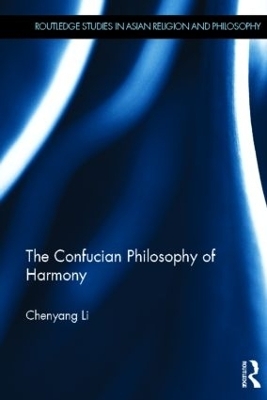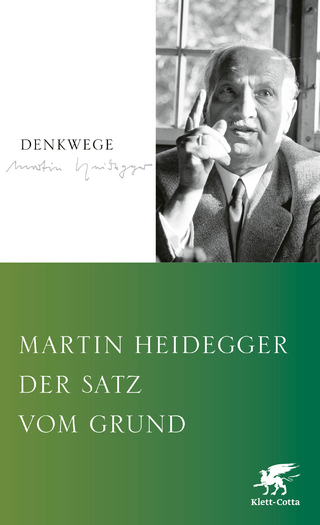
The Confucian Philosophy of Harmony
Seiten
2013
Routledge (Verlag)
978-0-415-84474-1 (ISBN)
Routledge (Verlag)
978-0-415-84474-1 (ISBN)
Harmony is a concept essential to Confucianism and to the way of life of past and present people in East Asia. Integrating methods of textual exegesis, historical investigation, comparative analysis, and philosophical argumentation, this book presents a comprehensive treatment of the Confucian philosophy of harmony.
The book traces the roots of the concept to antiquity, examines its subsequent development, and explicates its theoretical and practical significance for the contemporary world. It argues that, contrary to a common view in the West, Confucian harmony is not mere agreement but has to be achieved and maintained with creative tension. Under the influence of a Weberian reading of Confucianism as "adjustment" to a world with an underlying fixed cosmic order, Confucian harmony has been systematically misinterpreted in the West as presupposing an invariable grand scheme of things that pre-exists in the world to which humanity has to conform. The book shows that Confucian harmony is a dynamic, generative process, which seeks to balance and reconcile differences and conflicts through creativity.
Illuminating one of the most important concepts in Chinese philosophy and intellectual history, this book is of interest to students of Chinese studies, history and philosophy in general and eastern philosophy in particular.
The book traces the roots of the concept to antiquity, examines its subsequent development, and explicates its theoretical and practical significance for the contemporary world. It argues that, contrary to a common view in the West, Confucian harmony is not mere agreement but has to be achieved and maintained with creative tension. Under the influence of a Weberian reading of Confucianism as "adjustment" to a world with an underlying fixed cosmic order, Confucian harmony has been systematically misinterpreted in the West as presupposing an invariable grand scheme of things that pre-exists in the world to which humanity has to conform. The book shows that Confucian harmony is a dynamic, generative process, which seeks to balance and reconcile differences and conflicts through creativity.
Illuminating one of the most important concepts in Chinese philosophy and intellectual history, this book is of interest to students of Chinese studies, history and philosophy in general and eastern philosophy in particular.
Chenyang Li is Associate Professor of Philosophy and founding Director of the Philosophy programme at Nanyang Technological University of Singapore.
Introduction Part 1: Harmony as Philosophical Concept 1. Harmony with Creative Tension 2. Formation of the Ideal of Deep Harmony: He 3. Harmony from the Beautiful: Yue 4. Harmony with Ritual Propriety: Li 5. Harmony through Centrality and Equilibrium: Zhong Part 2: Harmony in Practice 6. Harmony in the Good Person 7. Home of Harmony: The Family 8. Harmonious Society 9. Harmonizing the World 10. Triadic Harmony in the Cosmos 11. Conclusion: Toward a Harmony Outlook
| Erscheint lt. Verlag | 9.10.2013 |
|---|---|
| Reihe/Serie | Routledge Studies in Asian Religion and Philosophy |
| Verlagsort | London |
| Sprache | englisch |
| Maße | 156 x 234 mm |
| Gewicht | 560 g |
| Themenwelt | Geisteswissenschaften ► Philosophie ► Metaphysik / Ontologie |
| Geisteswissenschaften ► Philosophie ► Östliche Philosophie | |
| ISBN-10 | 0-415-84474-6 / 0415844746 |
| ISBN-13 | 978-0-415-84474-1 / 9780415844741 |
| Zustand | Neuware |
| Haben Sie eine Frage zum Produkt? |
Mehr entdecken
aus dem Bereich
aus dem Bereich
Buch | Hardcover (2024)
Matthes & Seitz (Verlag)
CHF 41,90


